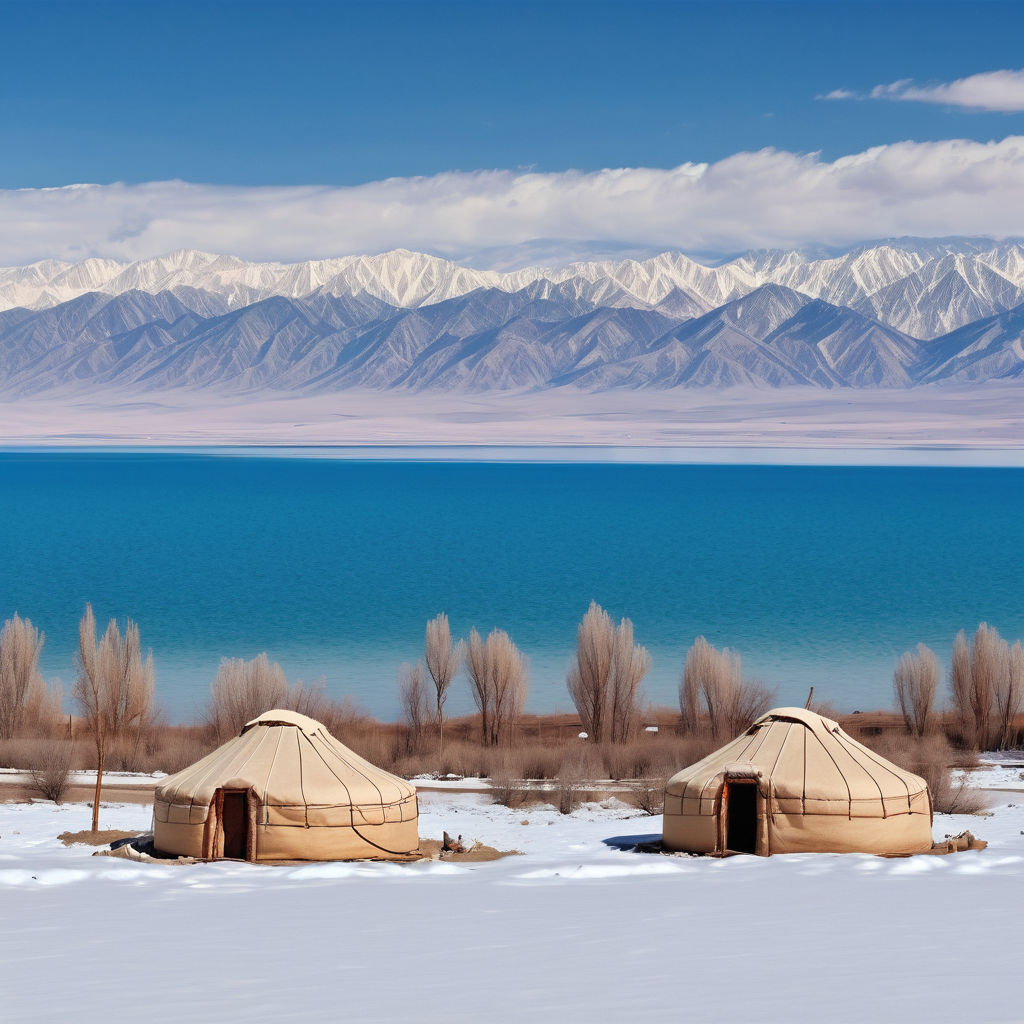Discover Kyrgyzstan: A Land of Nomadic Heritage and Natural Beauty
Exploring Kyrgyzstan's Rich Culture, Stunning Landscapes, and Global Connections

Introduction to Kyrgyzstan
Kyrgyzstan, a landlocked country in Central Asia, is known for its stunning natural landscapes, vibrant nomadic culture, and rich history. Bordered by Kazakhstan to the north, Uzbekistan to the west, Tajikistan to the south, and China to the east, Kyrgyzstan boasts a diverse topography ranging from vast mountain ranges like the Tian Shan and Pamirs to picturesque valleys and lakes such as Issyk-Kul. Bishkek, the capital and largest city, is the political, economic, and cultural heart of the country. Other major cities include Osh, known for its ancient bazaar and cultural significance, and Jalal-Abad, a center of agricultural production. Kyrgyzstan's cultural heritage is a unique blend of nomadic traditions and influences from various civilizations that traversed the Silk Road. This heritage is celebrated through festivals, traditional sports like horseback riding and eagle hunting, and the arts, including the famous felt-making craft and traditional music played on instruments like the komuz.
Cross-national and Cross-cultural Understanding
Kyrgyzstanis are generally open to engaging with other cultures, reflecting a historical openness influenced by the Silk Road's role as a cultural crossroads. The country actively participates in cultural exchanges and international partnerships, fostering a global perspective among its people. Educational programs play a significant role in promoting cross-cultural understanding. Many Kyrgyz students study abroad through scholarships and exchange programs, bringing back diverse experiences and perspectives. The American University of Central Asia in Bishkek, for instance, attracts students and faculty from around the world, creating a multicultural academic environment. International partnerships and cultural exchanges are also facilitated through events like the World Nomad Games, which celebrate nomadic culture and sports, drawing participants from various countries. These interactions promote mutual respect and understanding, highlighting the shared aspects of different cultures.
Interactions and Social Dynamics
Kyrgyzstanis are known for their hospitality and friendliness towards foreigners. Social interactions are generally warm and respectful, with a strong emphasis on community and family values. Traditional customs, such as offering tea and food to guests, reflect the importance of hospitality in Kyrgyz culture. Communication styles in Kyrgyzstan are typically direct yet polite. While Kyrgyz is the official language, Russian is also widely spoken, facilitating interactions with a broad range of people, including foreigners. Multilingualism is common, particularly in urban areas, where English and other languages are increasingly taught and spoken. Cultural norms emphasize respect for elders and community cohesion. Public behavior tends to be modest, and traditional dress and customs are often observed, especially in rural areas. However, the younger generation is increasingly adopting more globalized lifestyles, blending traditional values with modern influences.
Views on Dating and Relationships
Dating and relationships in Kyrgyzstan are influenced by traditional customs and societal expectations. While the younger generation is more open to dating and forming relationships with foreigners, traditional values still play a significant role. Family approval is often crucial, and relationships are generally viewed within the context of marriage. Cultural expectations can vary between urban and rural areas. In cities like Bishkek, dating practices are more liberal and influenced by global trends. However, in rural areas, traditional courtship practices, including arranged marriages, are more common. Regardless of location, respect for family and cultural traditions is paramount.
Marriage and Family
Marrying a foreigner in Kyrgyzstan involves navigating both legal and social considerations. Legally, foreign spouses must comply with residency and documentation requirements. Socially, gaining family acceptance is crucial, as family plays a central role in Kyrgyz society. Cross-cultural marriages are generally accepted, although they may face challenges related to cultural differences and integration. Families may have concerns about cultural compatibility and the ability of the foreign spouse to adapt to Kyrgyz traditions. However, many Kyrgyz families are open-minded and supportive of cross-cultural unions, recognizing the benefits of cultural diversity. Trends in cross-cultural marriages reflect Kyrgyzstan's growing interconnectedness with the global community. Many Kyrgyz who have lived or studied abroad bring back diverse cultural influences, enriching their families and communities with new perspectives and traditions.